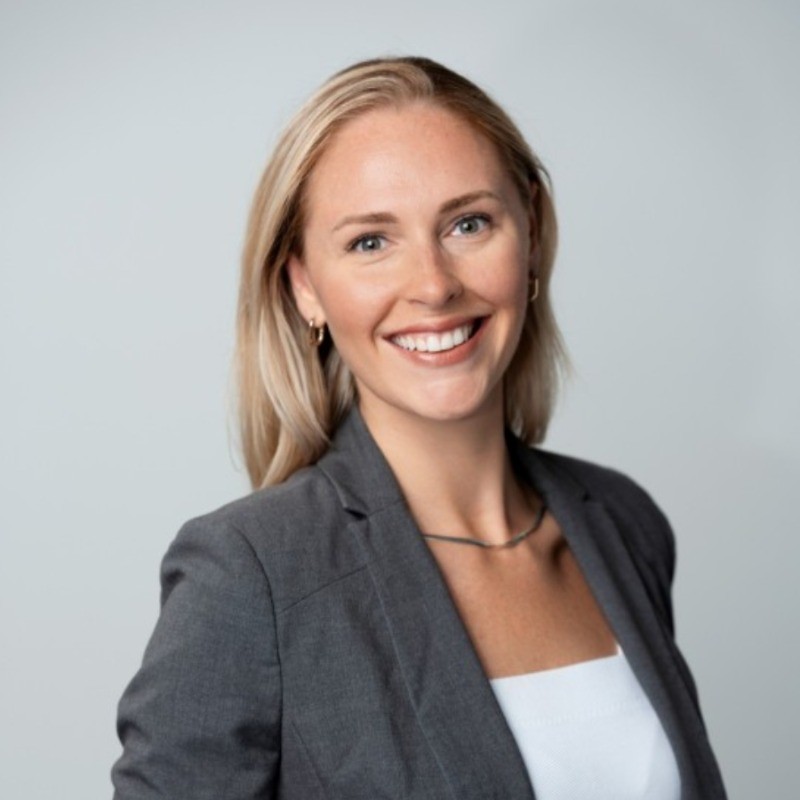
The Pulse by GRESB
The Pulse by GRESB is an insightful content series featuring the GRESB team, partners, GRESB Foundation members, and other experts. Each episode focuses on an important topic related to either GRESB, ESG issues within real assets industry, decarbonization efforts, or the wider market.
- Watch on Youtube
- Listen on Spotify
- Listen on Apple Podcasts
The road travelled: Building GRESB’s Real Estate Standards
In this episode of The Pulse by GRESB, we conclude our mini-series celebrating GRESB’s 15-year anniversary. Our guest explores the evolution of GRESB’s Real Estate Standards Committee and changing industry practices. The conversation delves into the shift from policy-based assessments to performance-driven standards, the integration of ESG into investment strategies, and the growing connection between the built environment and public health. Tune in to this episode featuring:
Transcript
Can’t listen? Read the full transcript below. Please note that edits have been made for readability.
Roxana: Hello everyone. My name is Roxana Isaiu, Chief Product Officer. Welcome to the third of a three part mini series covering the origins of GRESB, as we’re celebrating its 15 year anniversary. Joining us today is Andrea Palmer, Responsible Investment Lead at PGGM Global Real Estate Securities. Andrea, welcome to The Pulse.
Andrea: Thank you, Roxana.
Roxana: Great to have you here in your double capacity of GRESB alumni member as well as a very active and very involved member of the Real Estate Standards Committee. You’re very generous with your time, very thoughtful in your input and in the work that you’re doing with the rest of the group. Can you tell us a bit more about the work that the committee is responsible for, how has it evolved, and what’s ahead of you?
Andrea: Yeah, sure. Thank you, Roxana. So, the RESC, well, the Real Estate Standards Committee, I should use the full name, I think is one of the largest, most important changes from the time that I was working at GRESB nine years ago to today. When I was working there, GRESB could just independently make changes to the assessment, and that is no longer the case. So the evolution to have the foundation board and have the various standards committees for infra and for real estate is a very significant change. And I think an important and a positive one. So what we do at the standards committee is we are fully responsible for proposing changes and any kind of revisions to the real estate standards. So any changes to the assessment gets run through the RESC and decided on the RESC and then proposed to the Foundation Board. So that’s all done independently outside of GRESB BV. We have several working groups and we use other outside counsel to support us in that. But it is a very different process than it was when I was working there.
Roxana: Great. So, the purpose of today is for our audience to get to know you better and get to know your journey a little bit better. Especially since, to a large extent, it started with GRESB in the Netherlands. And you went on to do some amazing things and be involved in some amazing projects in various capacities, but still be very involved with the work that GRESB is doing. you came to the Netherlands about nine years ago, maybe a bit more, having worked for a little while at LaSalle. And I remember you were extremely passionate about the mission. You were very motivated about the work that GRESB was doing as a standard setter and as a mission-driven organization. Tell us a bit more about what motivated that beginning and what motivated your entire journey so far.
Andrea: Thanks. Thanks. So, indeed, I came to the Netherlands, yeah, just about nine years ago. And looking back, well, I thought I was applying for an internship with you. That kind of evolved, nonetheless. Long story short, I was on the capital raising team at LaSalle and we were raising money from the Dutch pension funds. And they basically said, well, we’ll only give you the money if you do this ESG thing for us. And that was actually the first time I had ever heard the term ESG. I had a look and that was GRESB, of course. So in other words, we went ahead, we did GRESB. And in the meantime, I got curious.
So I went to the GRESB website and I saw this internship vacancy, so I applied. Didn’t need to read a whole lot of it. It said Sustainability Analyst in Amsterdam. Well, let’s go. I did not come as an intern. I came as an analyst with a two year contract. And my interest was really indeed intrinsic.
I had always known that I wanted to work in sustainability, but at that time, which was, about nine years since I moved. It was more like 10 since we started the conversation and that was really fringe back then. So there wasn’t a lot of room at most places for that. GRESB was quite niche. And I really was eager to be part of something that I felt was starting to blossom.
Roxana: And here you are now being part of that in a very direct way. What are the first things that come to mind when you think about the role of these standards in the industry then and now, and perhaps thinking a bit more ahead?
Andrea: Yeah, well, I think the industry is clearly going through another round of reiteration, we could say. So the last decade has been a big change period. And I can imagine now that we’ve had this critical mass start to build, that we might be on the precipice of another change moment. I think a few things really stand out from what I’ve seen over the last while. The main one, of course, has been moving away from policies being the large part of the assessment to moving far more towards a performance based assessment. And that’s generally across the industry, not just with GRESB, I would say, as well. Also, moving from investors accepting portfolio level information only to now much more interest and enthusiasm for asset level information.
That was and still is a very significant change. And I think the other one is the change away from considering all real estate as one group of assets, to much more property type specification and focusing on the specific material factors that live within each of those various segments of the real estate market.
So I think I very much support all of those transitions, and I think that they’re still ongoing and there’s a lot to win still. And then maybe one more point to add, which is not so much about the GRESB assessment itself, but is about how it’s being integrated into organizations, how sustainability and ESG more broadly are being integrated into organizations.
Andrea: When I started, like I said, at the beginning, there wasn’t a lot of space for being a specialized sustainability professional, because it was actually most people’s side job, if at all. So it moved from side job, and then it moved to specialist, for which I am one.
But actually I think the next iteration of this is maybe we won’t have specialists anymore. It will be fully integrated into everyone’s day to day job descriptions across the board, not because it’s a passion project, no, because it’s part of the mandate.
Roxana: Is this already happening within PGGM also on the security side? I know that some of the large pension funds, some in the Netherlands, but maybe also outside of the Netherlands, are starting to support this integration between the teams.
Andrea: Yeah, it’s absolutely happening. So I already sit in the investment team. So I’m integrated in that regard. However, my sole responsibility is ESG and sustainability management. However, all of the portfolio managers that are also in my team are spending a lot of time getting themselves up to maybe even the same level of expertise that I have on ESG and sustainability, because they know it’s fundamentally required for us to be successful with our investment objectives. So that’s what I mean by moving from specialist to fully integrated. Not just integrated to have a specialist in the team, but to have specialist knowledge across everyone in the team.
Roxana: Yeah, so we are seeing a trend indeed, in upskilling the investment teams with regards to ESG and sustainability integration, as well as the sustainability professionals becoming more familiar with the investment processes and seeing the end to end impact of their work and how their work actually translates into the financial products. Is that a fair assessment?
Andrea: Yeah, that’s a fair assessment. And that’s especially the case at financial institutions. And this really holds for whether it be the asset owner, such as PGGM. However, it also accounts for the fund managers, but actually where I see it happening less are in the public companies because they’re not really considered financial institutions.
They’re real estate companies, which is a slightly different way of approaching your identity. Where I noticed this, was I was at a conference last year in the U. S. and speaking to a lot of REIT sustainability managers. And I asked them, do you guys have any idea what your investors need and want? And frankly, they didn’t. So I think it will be really helpful for this to happen across the board, not just in the financial institutions.
Roxana: Tell us a bit more about that, because your focus is a listed side. And the relationship between the investor and listed real estate companies is a bit different than between the investor and a private fund manager. To what degree do you think you, PGGM, and other organizations like PGGM, can directly influence these practices at the company level?
Andrea: I think with listed companies, there’s a few factors that can lead to successful influencing. The first factor is size. I think we’re quite lucky to be a pension fund with sizable assets under management. So we do have that. But there’s another influencing factor that is not required for every REIT investor, because not everyone will have the AUM size that we have, but that is expertise. So if you can bring to the table with a listed company, either size, then you have very significant influence. But if you bring expertise to the table, you also can be very influential. If the REIT management team sees you as bringing something to them that they otherwise wouldn’t have, then it’s a very collaborative and constructive conversation because they get something out of it. So I think those are the two factors where influence can be exerted, but one of the two, ideally both, are required.
Roxana: Yeah, and Andrea, it’s January 2025, start of the year, folks generally start with their personal resolutions, professional resolutions. Do you have any particular ESG resolutions of the year, either on a personal level, professional, through PGGM or your other initiatives that you’re involved in? What are you most excited about?
Andrea: Yeah, yeah, I do have. The thing that I want to achieve this year that I want to spend time helping others on is to better understand the relationship between the built environment and public health. So, of course, I work on behalf of the Dutch nursing and caregiving sector.
So it feels very important for me to ensure that our real estate portfolio integrates a health strategy. And I think thus far, real estate has been given a classification, if you will, that in my opinion, reduces it down to nothing more than energy and carbon. So I would love to spend a lot more time this year focusing on showing, both my colleagues and industry participants, the important relationships that buildings have on health.
Roxana: That’s fantastic. Especially as we’re building and rebuilding unfortunately, some heavily affected areas around the world. these days. What about PGGM as a whole?
Andrea: Yeah. Well, it’s an exciting time at PGGM. We’re going through a lot of changes internally. We’re moving to what’s called 3D investing and that is risk, return and sustainability all being treated equally in our investment process and our investment decision making. And as part of that, actually, each asset class within PGGM, real estate included, is undergoing quite a significant project, actually, to redefine what the asset class strategy should look like in a 3D investment reality.
So that’s actually been ongoing all of last year. For real estate, it’s expected to go actually all the way through 2027 to the time where we have a new portfolio strategy ready to go, ready for implementation. So we’re working on that currently and to be continued. And meanwhile, we’re also working out how our real estate targets we already have are going to be implemented.
Andrea: So, at this point in time, our real estate portfolios, listed and private, have a minimum AUM percentage that we need to have in funds or companies or JV vehicles, that have a science based target and that can mean different things for different segments of the portfolio. So that’s going to be a more significant push as we get closer and closer to our target deadlines. So I think that’s something to watch for the next coming few years.
Roxana: Exciting, especially as we hear more and more companies that are renouncing their targets. It’s great to see you doubling down on them and making them more in line with the financial targets and more integrated with the overall business strategy. Thank you for today, Andrea. Thank you for your commitment and hard work on the standards committee, I know all of us here at GRESB, but also our members in general, are very curious to see what the committee comes up with next and how some of the key topics are being evolved over the next months.
Andrea: Thank you, Roxana.

